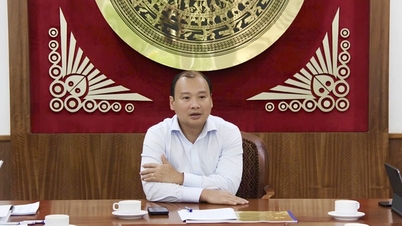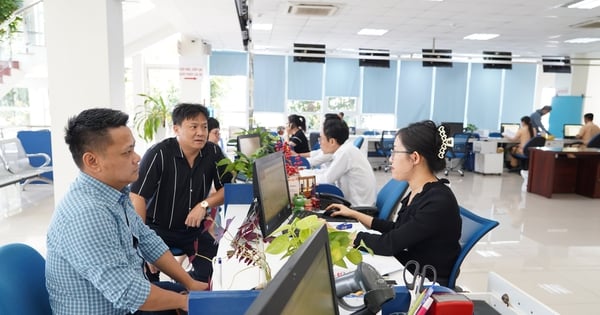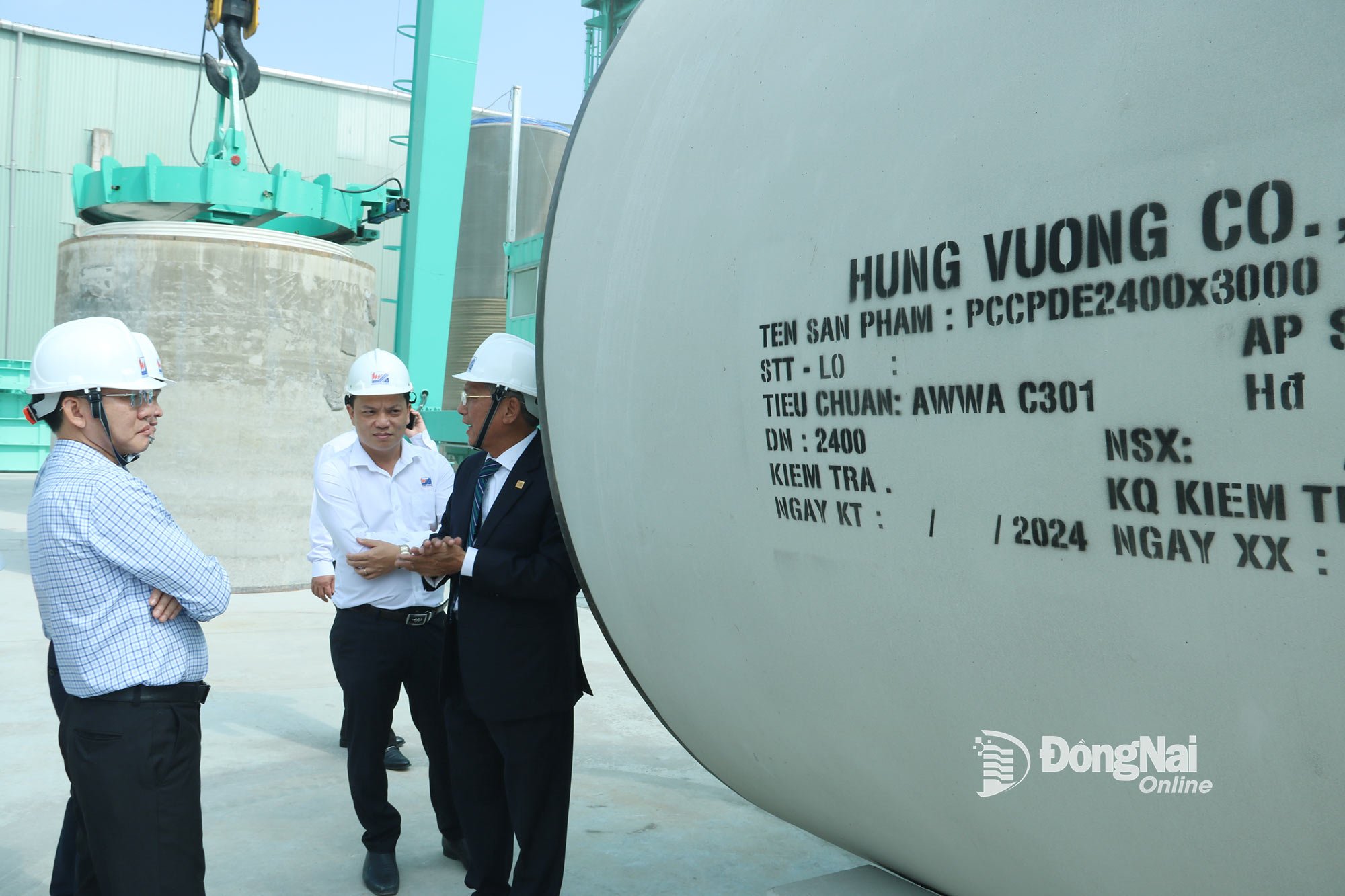Every citizen and business needs to improve their ability to adapt, protect themselves and be a wise approacher, user and applyer of digital technology achievements.
 |
| Dr. Cu Van Trung. (Photo: NVCC) |
The important driving force bringing the country into the digital age
Recently, General Secretary To Lam wrote an important article: "Digital transformation - An important driving force for developing productive forces, perfecting production relations, and bringing the country into a new era". It can be said that the General Secretary 's article has created a breakthrough in the perception of the digital transformation process in accordance with its nature, role, and position in the country's development. The article is also an orientation for the country's development in the new period.
To adapt and take advantage of the opportunities of the digital revolution, businesses also have many types of operating models - traditional models, businesses following the model of modern trends. Regardless of the type or method of operation, each business needs to constantly improve and update new information and new technology according to the capabilities, conditions and circumstances of its unit.
I think that today's technology businesses are very sharp, dynamic and knowledgeable about the developments of the 4.0 industrial revolution. Having the opportunity to interact with young entrepreneurs, I realize that they are innovative and ahead of the problems of social reality. They study abroad, in an international environment and return to Vietnam to start a business. They connect, guide and train a team of workers capable of working in the digital age. For example, opening practical e-commerce training classes, training Indian human resources to bring them into the Vietnamese market to work.
Thus, it can be seen that with visionary thinking and application of science and technology, understanding the gaps and shortcomings of this and that, they find the way to start a business and create for their business activities.
If I were to point out the most general formula for businesses today to best utilize the advantages of the digital age for development, in my opinion, each business needs to have 5 pillars: Digital business culture and strategy; connecting and optimizing customer experience; optimizing processes; technology; data analysis and management.
| "The digital revolution also raises ethical issues. So the question arises, what regulations and ethical standards are needed to ensure that technology is used responsibly." |
On that basis, businesses need to have an appropriate approach, propose key points to be solved and an effective and efficient implementation strategy. Just like any innovation and development process, digital transformation of businesses cannot be "ready-made", but through research and study, we can point out the general formula as I mentioned.
For people to be able to adapt and develop with the digital age, it is necessary to equip themselves with basic skills including three blocks of capacity (two groups of cognitive and physical capacity), basic skills (two groups of professional and work-processing skills) and multitasking skills (five groups of social, system, technical, complex problem-solving and resource management skills)...
In his article, General Secretary To Lam pointed out that the process of globalization and international integration poses an urgent need to improve the competitiveness of the economy. The fourth industrial revolution is taking place strongly, the development of production tools in the digital economy creates profound changes in the productive forces, leading to new contradictions with existing production relations; both creating the premise and driving force for the formation of new production methods in the future, and requiring fundamental changes in the way of organizing production and social management.
New productive forces are forming and developing strongly; however, the quality of human resources is still far from the requirements of national development in the new period, while training and fostering to improve the quality of human resources, especially high-tech human resources, remains a big challenge. Production relations still have many shortcomings, not keeping up with the development of productive forces.
 |
| Every citizen and business needs to improve their ability to adapt, protect themselves, and be a wise approacher, user, and apply the achievements of digital technology. (Source: VGP) |
At the same time, General Secretary To Lam also emphasized that we are facing the need for a revolution with strong and comprehensive reforms to adjust production relations and create new momentum for development. That is the digital transformation revolution, applying science and technology to restructure production relations in line with the remarkable progress of productive forces.
Digital transformation is not simply the application of digital technology to socio-economic activities, but also the process of establishing a new, advanced and modern production method - "digital production method", in which the characteristic of the productive forces is the harmonious combination of humans and artificial intelligence; data becomes a resource, an important means of production.
At the same time, production relations also undergo profound changes, especially in the form of ownership and distribution of digital means of production. Changes in production relations will strongly impact the superstructure, opening up new methods of social governance, creating new tools in state management, fundamentally changing the way the state and citizens interact, and between social classes.
The digital revolution also raises ethical issues. So the question arises, what regulations and ethical standards are needed to ensure that technology is used responsibly.
In particular, the digital revolution must put the goal of human development above all else. All achievements that a country or community achieves if not based on criteria of sustainable development and for people are worthless and inhumane.
People can rely on the dark side of technology, of the digital age to do business, to profit because the two-sided nature of the 4.0 revolution is always present and constant. Therefore, there must be codes of conduct, criteria and higher laws in this field. Only strict management and sanctions can ensure the purity and cleanliness of the digital space environment.
Therefore, the guiding and regulating role of management agencies on digital transformation is constant in the transitional period of the current digital transformation period. In particular, each citizen and business needs to improve their ability to adapt, protect themselves and be a person who wisely approaches, uses and applies the achievements of digital technology. Strongly communicate skills and highly educational situations so that children and the elderly have awareness and can perform correct and standard behaviors in the process of integrating into digital life and the digital economy of society and the country.
 |
| Digital transformation takes place in most types of businesses. (Source: DDK) |
Digital transformation - strategy to enhance competitiveness
It can be said that digital transformation is an inevitable trend in the era of technology 4.0. Vietnam is facing an important turning point in its transition to a digital economy. General Secretary To Lam's article mentioned key issues in promoting digital transformation, not only at the national level but also in each industry and each field. Through that, we can draw profound experiences about the digital transformation process in Vietnam.
Digital transformation is not just a technological trend, but a strategic factor that helps Vietnam enhance its competitiveness, promote sustainable economic development and improve the quality of life of its people. Digital transformation is not only a task of state agencies, but of the whole society, from businesses to people. This requires a change in thinking and action, from leaders to organizational and individual levels.
One of the key issues is the need to improve the national information technology infrastructure to ensure a solid foundation for the digital transformation process. However, this is not only about investing in infrastructure, but also about innovation in thinking about technology. Vietnam needs to focus on developing key technologies such as Artificial Intelligence (AI), big data and blockchain, while ensuring cybersecurity and people's privacy.
Digital transformation is not only a tool to promote economic development but also a solution to administrative reform, improve transparency and efficiency in state management. The application of information technology in management helps reduce corruption, waste and improve the quality of service to the people. An electronic civil servant system can help simplify administrative procedures, shorten work processing time, and create a more transparent and responsible working environment.
In particular, digital transformation must truly serve the interests of the people. That is, public services must be designed to be accessible and convenient, leaving no one behind. Digital transformation must go hand in hand with human resource development and digital skills training for people, especially those in disadvantaged groups, so that they can participate equally in the digital economy.
Furthermore, digital transformation is a revolution that requires constant flexibility and innovation. Businesses and organizations need to quickly adapt to the constant changes in technology, and at the same time create new business models and working methods to make the most of the opportunities that digital transformation brings.
The digital transformation process that General Secretary To Lam mentioned is a comprehensive and breakthrough change in all areas of social life, from state management, education, healthcare to production and business. However, for this process to be successful, Vietnam needs to focus on developing technological infrastructure, training human resources, and continuously reforming institutions, creating favorable conditions for businesses and people to participate in the digital economy. Digital transformation is not only a goal, but also a journey that requires solidarity and efforts from the entire political system and society.
Source

































































































Comment (0)